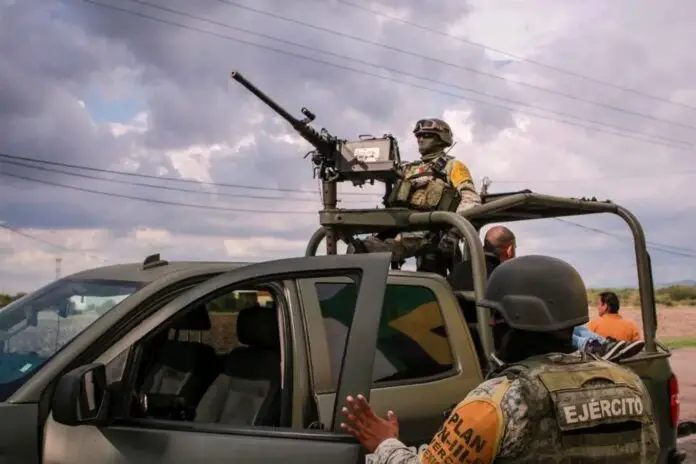Since the arrest of cartel boss Ismael “El Mayo” Zambada in El Paso, Texas on July 25, 2024, the state of Sinaloa in Mexico has seen a surge in violence. El Mayo claimed he was abducted on his way to a meeting with the governor of Sinaloa, fueling allegations of direct ties between Mexico’s top politicians and cartel leaders. Governor Ruben Rocha, a close ally of former President Andres Manuel Lopez Obrador, has denied planning to meet with El Mayo before the arrest but has struggled to dispel rumors about his connections with Sinaloa’s organized crime figures. In the weeks following El Mayo’s arrest, Sinaloa has experienced intense cartel infighting, resulting in over 260 deaths in Culiacan.
Historian Benjamin Smith, author of “The Dope: The Real History Of The Mexican Drug Trade,” discussed in a recent podcast how El Mayo’s arrest has destabilized the criminal underworld in Sinaloa, the long-time base of the Sinaloa Cartel. Smith noted that El Mayo, with nearly five decades in the drug trade, had become a key mediator between the cartel and the government.
“El Mayo has transitioned into more of a political figure, which is why there is concern about the future of Sinaloa,” Smith explained.
The turmoil in Sinaloa has cast a shadow over President Lopez Obrador’s tenure and intensified criticism of his strategy against Mexico’s cartels. Smith remarked that many would grade Lopez Obrador’s efforts as a failure, citing record-high homicide rates and widespread extortion by criminal groups.
Mexico is now considered the world’s worst hotspot for extortion and cargo truck hijacking. Smith pointed out that fragmented cartels have turned to extortion, kidnapping, land theft, and auto theft due to their diminished capacity for transnational drug smuggling.
This fragmented criminal landscape poses new challenges for Mexican political leaders who aim to reduce violence through negotiations rather than arrests. Smith highlighted Lopez Obrador’s difficulty in managing smaller gangs compared to larger cartels like El Mayo’s.
The ongoing violence in Sinaloa has marked a difficult start for President Claudia Sheinbaum’s term. Sheinbaum has pledged to enhance security through better inter-agency cooperation and investment in police intelligence. However, in 2022, nearly 96 percent of crimes reported in Sinaloa went unsolved, reflecting a broader trend of impunity across Mexico.
“There is almost complete impunity for those involved in organized crime, with only about 4 percent of violent crimes being prosecuted. Overhauling the judicial system is essential for any solution,” Smith concluded.
Source: Forbes






